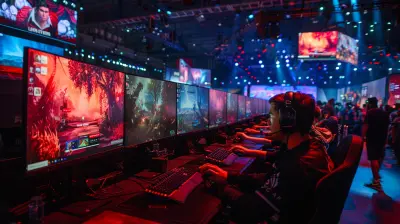The Emotional Weight of Saving the World in JRPGs
10 October 2025
JRPGs—Japanese Role-Playing Games—have always hit different. You boot up the game, expecting cool battles and flashy magic, but before you know it, you're crying over a character's death, questioning the meaning of sacrifice, and feeling like you just carried the emotional burden of an entire fictional universe on your back. Yep, saving the world isn't just about swordplay and spells—it's a mental, emotional, and even existential rollercoaster.
Let’s dive into the emotional depth that makes JRPGs so much more than just “beat the big bad and roll credits.” Because, let’s be real—JRPGs have a way of leaving a mark on your soul.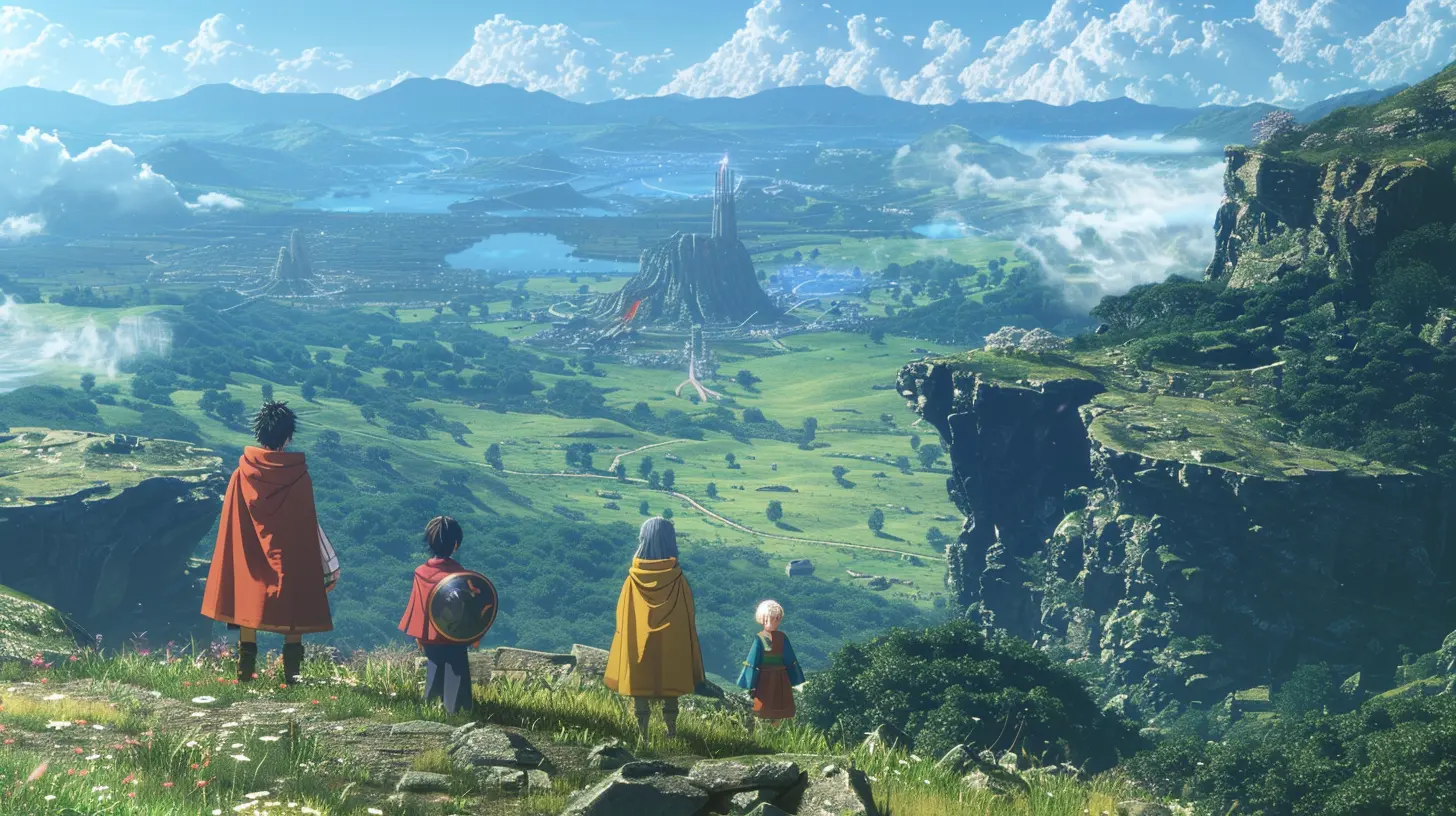
The Hero’s Journey: More Than Just a Cliché
Every JRPG has some form of “hero saves world” narrative. It’s almost a genre staple. But where Western RPGs often lean into grand political plots or gritty realism, JRPGs wrap you in emotion and character-driven storytelling. You're not just fighting off evil—you’re usually watching a once-ordinary teen emotionally unravel as they shoulder the world's fate.Think of it like Frodo carrying the One Ring, except he’s also trying to navigate high school, save his friends, and maybe even find love—all while battling literal gods.
Growth Through Trauma
One of the emotional anchors of JRPGs is character growth through trauma. The protagonists often don’t start out as heroes. They’re reluctant, scared, or even broken. But facing unimaginable odds—losing loved ones, facing betrayal, or learning harsh truths about themselves—forces them to grow.Games like Final Fantasy X or Persona 5 make it clear: saving the world comes at a cost. You don’t get to be the “chosen one” without breaking a little along the way. And that’s the emotional hook—we're not just rooting for the hero to win; we're begging for them to make it through alive... emotionally.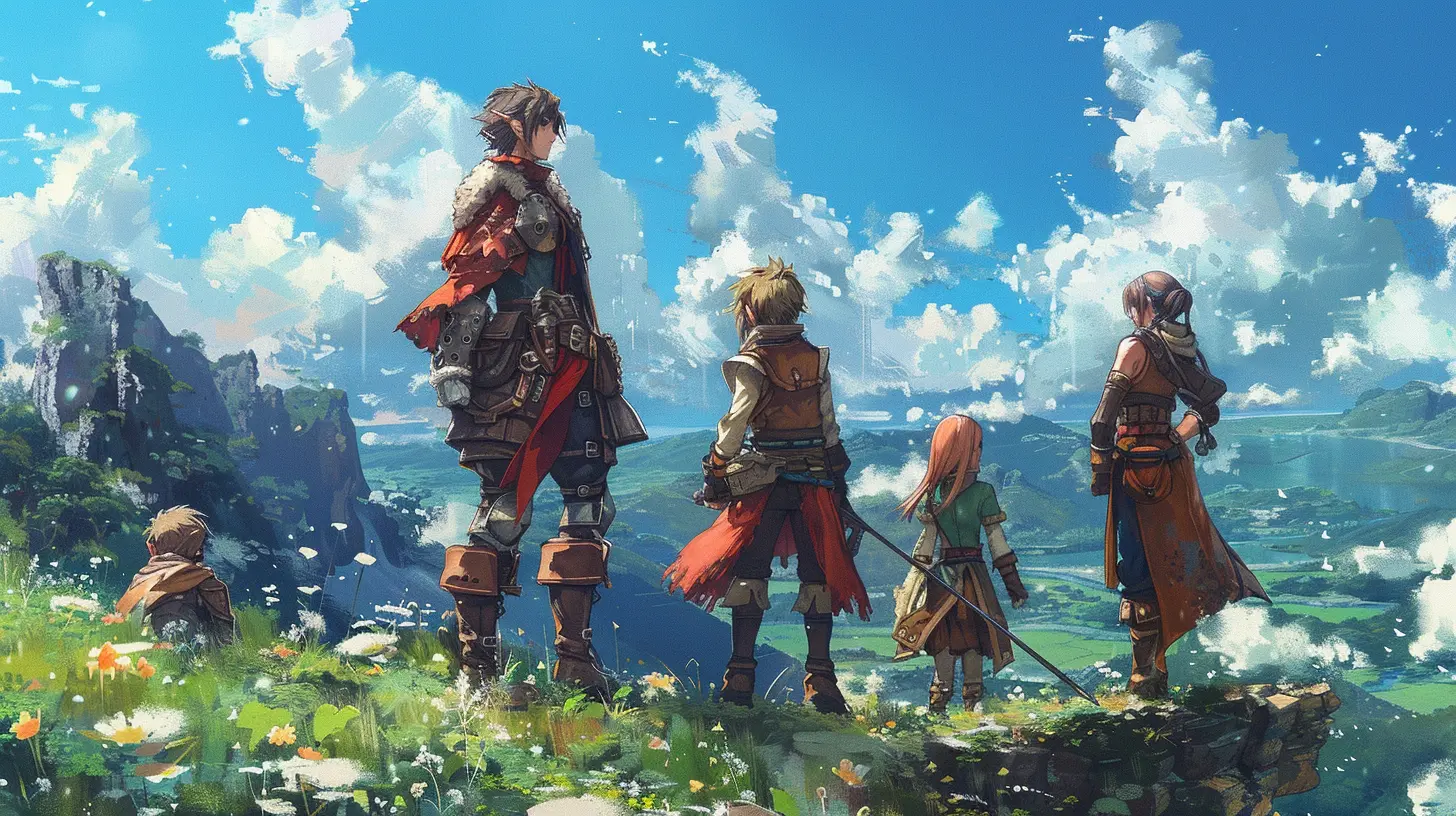
Party Members: A Found Family Under Pressure
There’s something special about the cast of characters in a JRPG. They’re not just sidekicks—they’re family. And like any real family, they bicker, bond, and break together. These aren’t just stats with legs; they’re wounded souls looking for redemption, peace, closure, or just a place to belong.Emotional Ties That Bind
Ever notice how JRPGs often include long, dialogue-heavy scenes between party members? They’re not filler. They’re bonding moments. Whether it’s sharing a campfire, visiting a character’s hometown, or teasing each other during downtime, these small scenes stack up to make you care.So when something bad happens—and it always does—it hits hard. One character’s pain becomes everyone’s pain. Losing a party member or watching them suffer feels personal because you’ve walked miles together, fought side-by-side, and shared your hearts.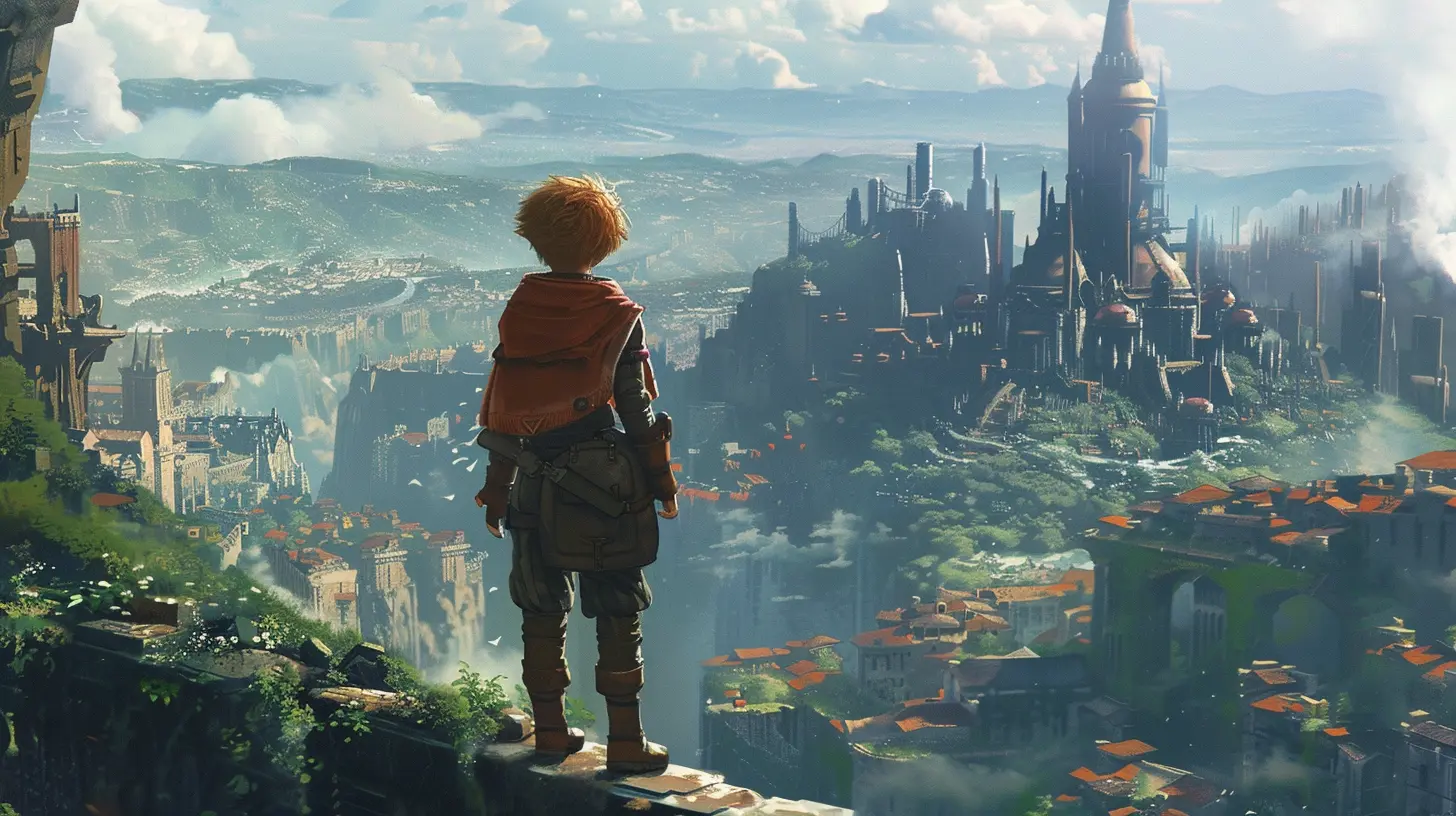
The Villain Isn’t Always Evil
Here’s a mind twist: sometimes, the villain in a JRPG is trying to save the world too… just in a way that seems twisted or hopeless. And that moral grayness? That’s what keeps us up at night.Tragic Antagonists
Ever played Final Fantasy VII? Sephiroth isn’t evil for evil’s sake. He’s a fallen hero, manipulated, lost, and in pain. Or take Tales of Symphonia—you discover halfway through the story that “destroying the world” might actually be the only way to save it. These antagonists often mirror the hero—both wield heavy emotional baggage, both want change, but their methods clash.That revelation breaks the simple good-vs-evil binary and asks: what would you do if faced with an impossible choice? That emotional complexity elevates JRPG storytelling beyond basic fantasy tropes.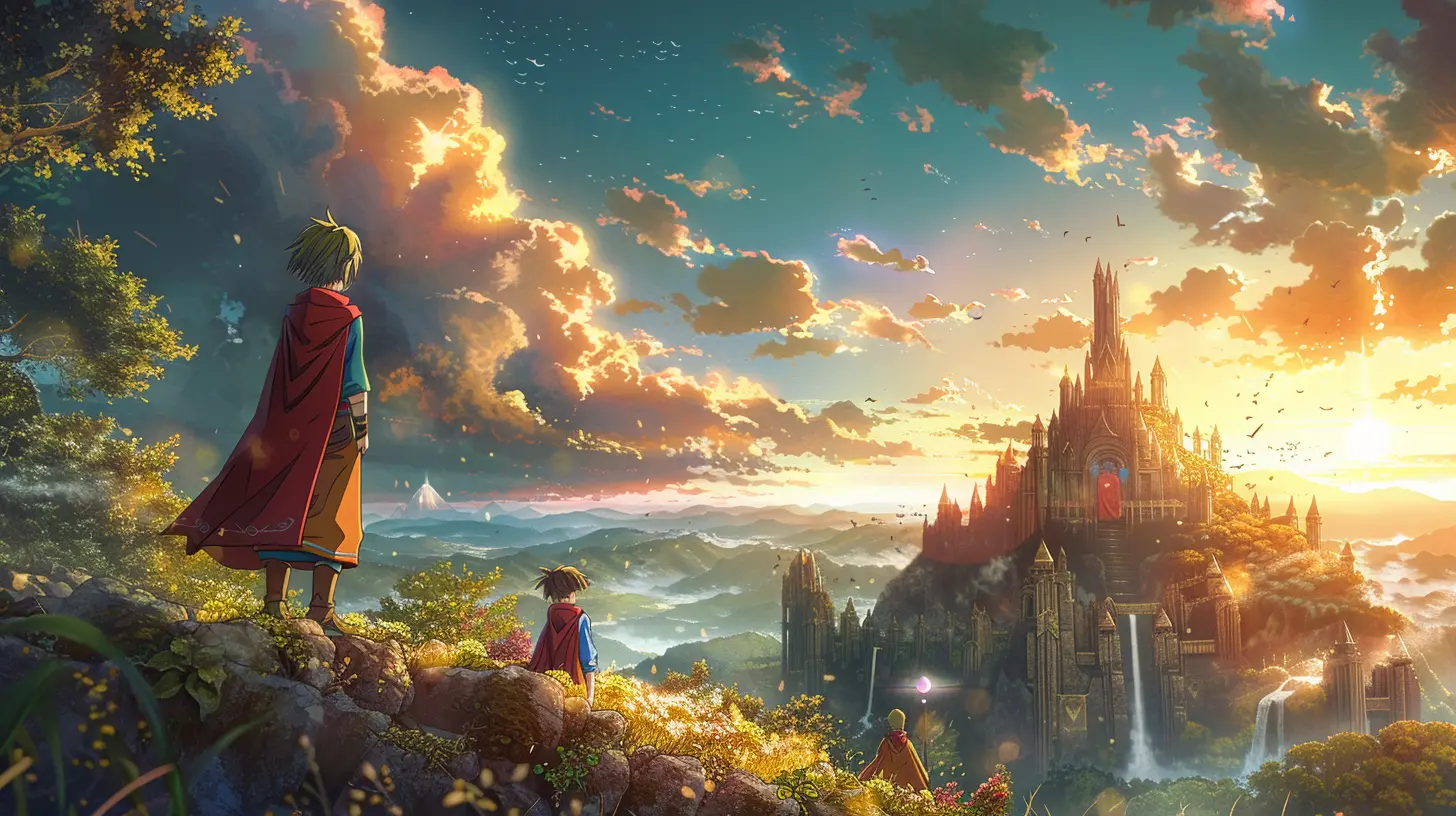
The Burden of Choice
What makes JRPGs stand out is how often they involve you, the player, in emotionally-loaded decisions. Who do you save? Who do you trust? What future will you help shape?Not every game gives you multiple endings, but many do let your choices influence relationships, outcomes, and even the protagonist’s inner world. These aren’t just game mechanics—they’re emotional investments.
When Saving the World Feels Personal
Saving the world isn’t abstract. In JRPGs, it’s grounded in faces, places, and memories. You’re not saving a planet—you’re saving your world. That town where you had your first big victory? That NPC who gave you side quests with emotional payoffs? They matter. The world isn’t a backdrop—it’s part of your journey. Losing it feels like losing a part of yourself.Themes That Hit Hard and Stay Long
JRPGs often tackle surprisingly deep themes—death, identity, free will, sacrifice, love—and they don’t always tie everything up with a neat bow. Many leave you with more questions than answers, and in doing so, they stay with you long after the credits roll.Sacrifice Isn’t Always Heroic
Ever noticed how often the protagonist has to give something up? It could be their home, their innocence, a friend, or even their own life. And JRPGs don’t treat this lightly. The weight of sacrifice is portrayed with slow, painful build-up, making it hit all the harder. It’s not just “press X to continue”—it’s “press X and say goodbye.”Identity Crisis Central
Characters in JRPGs often wrestle with who they really are. Am I a weapon? A clone? A god? A mistake? These identity crises aren’t just plot twists—they’re emotional battlegrounds. Watching someone slowly accept their true self is deeply moving, especially if the world around them rejects it.Why We Keep Coming Back (Even Though It Hurts)
So why do we keep playing JRPGs if they’re such emotional gut-punches? Honestly, because they mean something. They give us stories that validate our struggles, characters who mirror our fears, and victories that feel genuinely earned.Emotional Catharsis: The JRPG Way
That moment when the hero finally overcomes their self-doubt, forgives themselves, or says goodbye to a lost friend? That’s catharsis. That’s emotional release. JRPGs give us the space to feel deeply, cry freely, and come out the other end a little more whole.Games That Perfectly Capture the Emotional Weight
Let’s give a shout-out to some titles that really brought the feels:1. Final Fantasy X
Tidus laughs awkwardly and we cringe—but behind that cringey laugh is a world of pain. Watching him and Yuna navigate love, duty, and inevitable loss is emotionally devastating in the best way.2. Persona 3
You live, you make friends, you fight shadows... and then you realize there’s a ticking clock behind it all. The ending isn't just a twist, it's a gut-check.3. Nier: Automata
Are the enemies evil, or just misunderstood machines? This game questions the very nature of life and purpose. By the time you unlock Ending E, you're emotionally exhausted—in the good way.4. Suikoden II
Betrayal. Loyalty. Brotherhood. This under-the-radar classic is a masterclass in emotional storytelling, where war tears apart childhood friends and forces impossible choices.5. Tales of the Abyss
A whiny protagonist you grow to love. A world built on lies. And a central theme about finding one’s own worth. Simple on the surface, but it hits deep.Final Thoughts: It's Okay to Cry Over Pixels
Look, if you’ve ever cried—really, truly cried—over a JRPG, you’re not alone. These games are designed to do more than entertain. They’re emotional journeys wrapped in fantasy. And that’s why they matter.In a world filled with endless game releases and flashy graphics, JRPGs remind us that sometimes, the greatest battles are fought in the heart. Saving the world? That’s just the surface. The real story is the emotional cost of carrying that responsibility—and still choosing to fight.
So next time you pick up a JRPG and someone asks, “Isn’t that just another anime game?”… smile, shake your head, and say, “You have no idea.
all images in this post were generated using AI tools
Category:
JrpgsAuthor:

Audrey McGhee
Discussion
rate this article
2 comments
Joel McGill
Saving worlds: heavy lifting for emotional hoarders!
January 23, 2026 at 5:26 PM

Audrey McGhee
Absolutely! It highlights the unique burden characters bear, reflecting our own struggles with emotional baggage.
Isabelle Russell
Thought-provoking insights, thank you!
October 10, 2025 at 4:45 AM

Audrey McGhee
Thank you for your kind words! I'm glad you found the insights thought-provoking!
